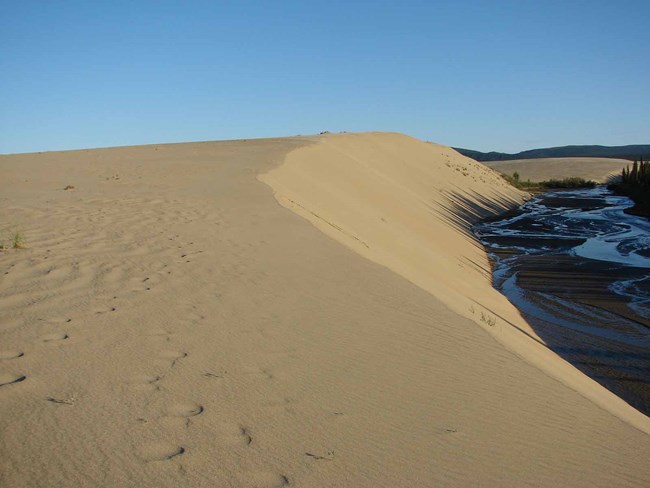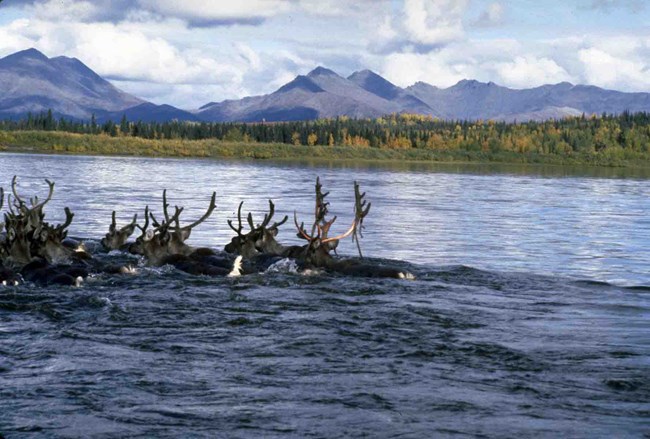
Kobuk Valley National Park covers 1.75 million acres of boreal forest and mountains in northwestern Alaska and includes the Great Kobuk Sand Dunes—the largest active, high-latitude, dune field on Earth. The dunes originally formed during drier climates of the ice ages when strong winds and sparse vegetation allowed the wind to sweep sand from sandbars of the Kobuk River.
The meandering Kobuk River creates beautifully curved patterns visible from the air. Each year, an 8,000-year-old caribou crossing on the river at Onion Portage is crossed again. Hundreds of thousands of caribou migrate through the park between their calving and summering grounds on the tundra near the Arctic Ocean and their wintering grounds in the boreal forest to the south. This caribou migration is one of the last, great large mammal migrations on Earth that remains unobstructed by roads.

What we monitor in Kobuk Valley National Park
What's Happening in Kobuk Valley National Park
Last updated: February 14, 2024
